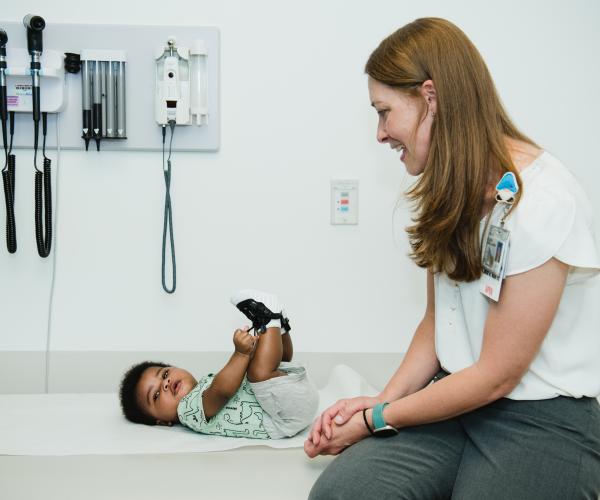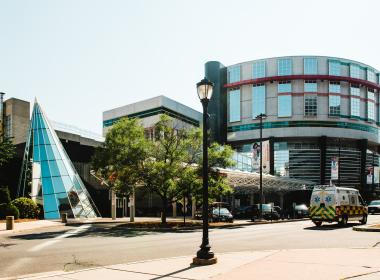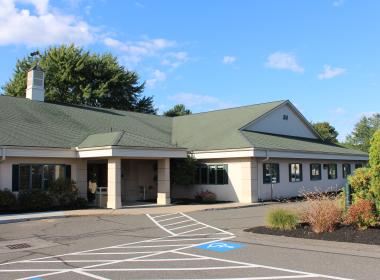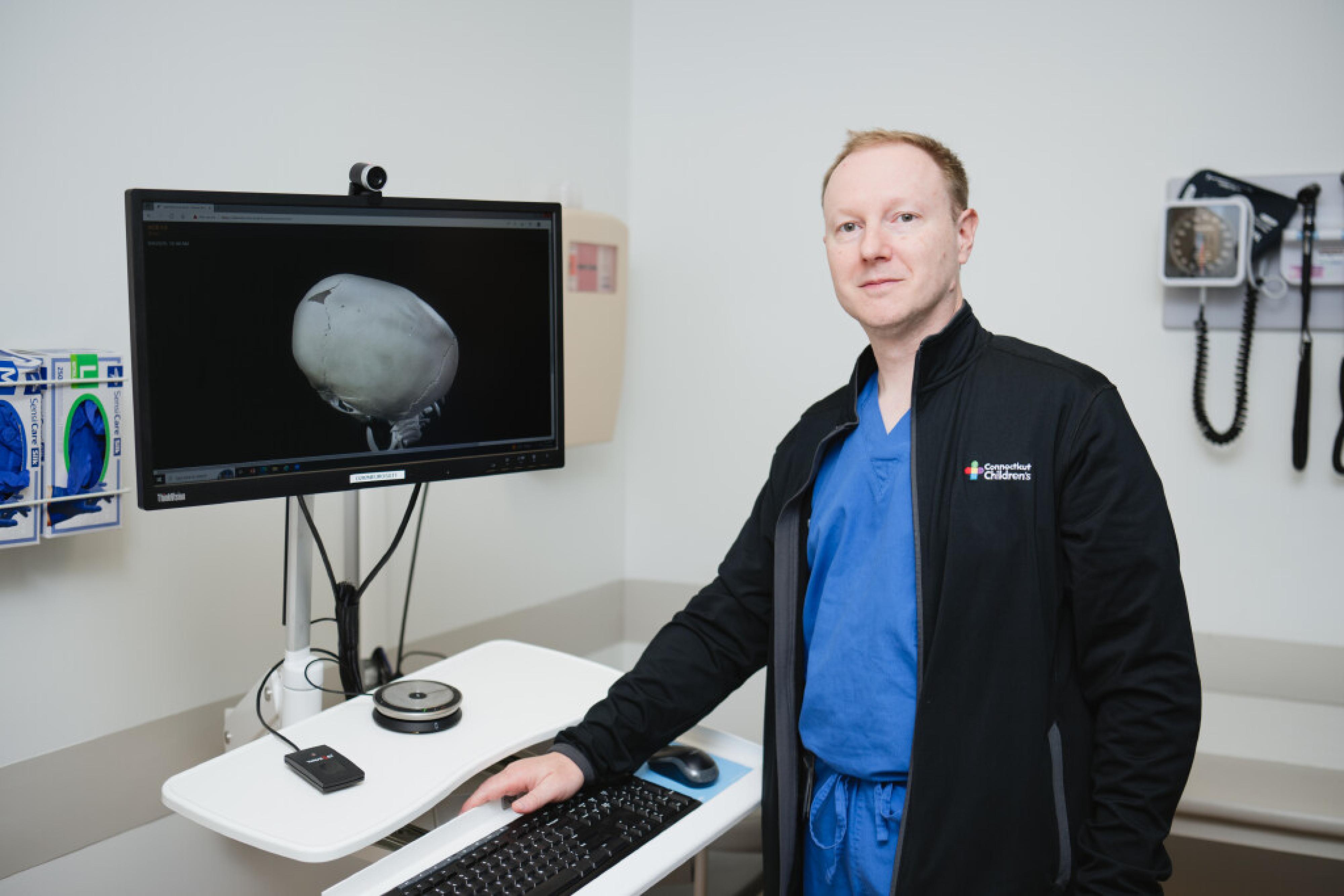At Connecticut Children’s, our pediatric neurosurgery team provides expert care for children of all ages, from infants to young adults, who need specialized surgical treatment for conditions affecting the brain, spinal cord, and nervous system.
Why should you choose Connecticut Children’s for Neurosurgery?
Connecticut Children’s is the only facility in Connecticut providing 24/7 coverage for your child by board-certified pediatric neurosurgeons. Our pediatric neurosurgeons are leaders in diagnosing and treating a full range of neurological conditions. Whether it's a routine procedure or a complex operation, our surgeons use cutting-edge techniques to provide compassionate, effective care for every child. From pediatric brain surgery to treating spinal conditions, we are committed to delivering the highest quality care in a family-centered environment.
Our team of board-certified pediatric neurosurgeons works closely with other specialists, like pediatric neurologists, to ensure that your child’s care is comprehensive and personalized. We’re with you every step of the way—from diagnosis through recovery.
Conditions Treated by Pediatric Neurosurgeons
Pediatric neurosurgery differs from adult neurosurgery because children’s brains and nervous systems are still developing. Our specialists are experienced in treating conditions that require both surgical precision and an understanding of child development. Some of the most common conditions we treat include:
- Pediatric brain tumors – We work closely with our Neuro-Oncology Program to provide expert care for children with brain tumors. Treatment often includes surgery, chemotherapy, or radiation therapy, depending on the tumor type.
- Spina bifida – Our team manages spina bifida through surgical interventions that can repair the spinal cord and prevent further neurological damage. Each case is unique, and we tailor treatments to meet the needs of every child.
- Epilepsy surgery – For children who do not respond to medication, surgical intervention may be required to manage epilepsy and improve quality of life.
- Hydrocephalus - A condition that occurs when cerebrospinal fluid (CSF) builds up in the brain, typically due to an imbalance between the production and absorption of cerebral spinal fluid. Our pediatric neurosurgeons have expertise in using several techniques to treat hydrocephalus.
- Craniosynostosis – This birth defect occurs when one or more of the sutures in a baby’s skull close too early, affecting brain and skull growth. Our neurosurgeons collaborate with craniofacial specialists to perform surgeries that correct this condition.
- Chiari Malformation - A condition in which brain tissue extends into the spinal canal – simply put, the brain is too big for the head. Our neurosurgery team are experts in diagnosing and treating this condition.
What is Hydrocephalus?
This condition involves an abnormal buildup of cerebrospinal fluid within the brain, which puts pressure on the brain tissue. It requires prompt treatment to prevent long-term complications. Treatment options often involve the surgical placement of a shunt to drain the excess fluid. Learn more about this condition and how the experts at Connecticut Children's treat hydrocephalus in this video.

What is Craniosynostosis?
Craniosynostosis is a condition whereby one or more of the bony plates in a child’s skull fuse prematurely and impair normal cranial growth. This condition occurs in roughly one in 2,000 children, and is typically identified within the first few months of life. Left untreated, children with craniosynostosis will go on to have lifelong deformities of their head and, in severe cases, visual problems, headaches and vomiting. Learn more about this condition and how the Neurosurgeons at Connecticut Children's treat craniosynostosis.

Our Neurosurgery Expertise
Meet Our Team of Pediatric Neurosurgery Specialists
Our team of board-certified pediatric neurosurgeons at Connecticut Children’s are skilled in treating even the most complex disorders of the central nervous system.

Caring for pediatric neurosurgery needs.
Learn more about the conditions we treat at Connecticut Children’s.

Our Research
We are committed to advancing the field of pediatric neurosurgery by conducting research to better understand disorders that affect the pediatric nervous system, including brain tumors and conditions of the skull, neck and spine.

Diagnostics and Treatment: What to Expect
When your child is referred to a pediatric neurosurgeon, the first step is a thorough diagnostic evaluation. We use a combination of imaging studies, including MRI and CT scans, to understand the full extent of your child’s condition. For some conditions, such as epilepsy or brain tumors, additional tests like EEGs may be necessary to help us develop a detailed treatment plan.
During your pre-operative consultation, our team will walk you through every aspect of the upcoming procedure, answering your questions and making sure you feel comfortable and informed. We’ll also explain any pre-surgery instructions, such as how to prepare your child for anesthesia and surgery day.
Recovery After Pediatric Neurosurgery
Recovery times vary depending on the complexity of the surgery, but our goal is to ensure a smooth, safe recovery for every child. After surgery, your child will be closely monitored, and we’ll provide a personalized care plan for their recovery at home. Our team will offer guidance on pain management, wound care, and what signs of complications—such as infection, swelling, or changes in behavior—to watch for. Regular follow-up appointments will help us monitor your child’s progress and adjust their care plan as needed.
Locations

Connecticut Children’s Medical Center – Hartford
282 Washington Street
Hartford, CT06106
United States

Connecticut Children’s Specialty Care Center – South Hadley
84 Willimansett Street, Suite 3
South Hadley, MA01075
United States

Connecticut Children’s Specialty Care Center – Westport
191 Post Road West
Westport, CT06880
United States
Resources for Patients & Families
Developed by neurosurgeons, this resource provides patients and their families trustworthy information on a wide range of neurosurgical conditions and diseases. Learn about disease and injury risk factors, symptoms, diagnosis and both surgical and nonsurgical treatment options.
American Cleft Palate Craniofacial Association (ACPA) is leading interdisciplinary cleft and craniofacial care so patients and families thrive.
The American Syringomyelia and Chiari Alliance Project is one of the main Chiari resources endorsed by the American Association of Neurological Surgeons.
Children’s Brain Tumor Foundation is dedicated to improving the treatment, quality of life and the long term outlook for children with brain and spinal cord tumors.
CAPPS — which stands for Craniosynostosis and Positional Plagiocephaly Support (now known as Deformational Plagiocephaly)— is the pioneer and leader in supporting and educating families diagnosed with Craniosynostosis and/or Positional Plagiocephaly.
The Hydrocephalus Association provides support, education and advocacy for people whose lives have been touched by hydrocephalus.
The Pediatric Spine Foundation's mission is to help children with spine problems live longer, better lives.
The Spina Bifida Association serves adults and children who live with the challenges of spina bifida. It is dedicated to enhancing the lives of those with spina bifida and those whose lives are touched by this challenging birth defect.
The Latest in Neurosurgery
Schedule an Appointment
At Connecticut Children’s, our pediatric neurosurgery team is here to offer expert care for your child’s neurological condition. Whether your child needs brain surgery, spinal surgery, or treatment for a complex neurological disorder, we’re here to guide you every step of the way.
Call us at 860.545.8373 or schedule an appointment today to learn more about how we can help.




